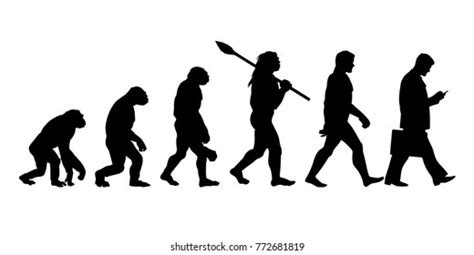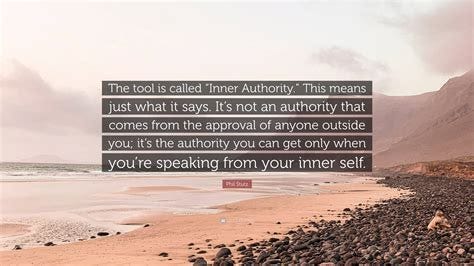Trusting our own inner knowing
You know what's right for you, not the experts and not the crowd
The topic of logical fallacies has continued to occupy my thinking. It is not an entirely new topic to me, but has been revived in my awareness because of the ways that the virology advocates and Covid-19 managers have used them to create a false narrative designed to trick and scare people into accepting jabs and giving up more of their freedoms. Beginning to see how this was done opens up the field of logical fallacies and their counterpart, cognitive biases, and how they are used deliberately to convince us that all manner of lies and fantasies are truth.
As humans, I believe that we are susceptible to manipulation through these means. So it behooves us to become aware of our vulnerability, and to make a shift in how we relate to our own inner awareness. It is more important than ever to do this in a situation such as the current one, where our very future as a species is at stake.
One such vulnerability is our tendency to outsource our own internal sense of what is true and what is not true to an outside entity. We all have the capacity to know what is right for us and what is wrong for us because we have a body that is constantly providing our awareness with this information. Sometimes this is called intuition or even instinct. It is also known as “inner authority” or “inner knowing.”
We are taught not to trust ourselves
However, in a system which teaches us from babyhood that someone else knows better than we do what is good for us, we learn to trust experts and outside authorities more than ourselves. In fact, we explicitly learn NOT to trust ourselves. This is nowhere more evident than in the field of medicine, where we are taught that the doctor is the one who knows what is best for us, even though we are the one living inside this body. Most of us have had interactions with the medical system in which our efforts to tell the doctor what we feel is going on within us have been met with the wave of a hand, or even ridicule. They know; we don’t. Mothers of vaccine-injured children have experienced this with bitter regularity.
After a while, we can even lose touch completely with our own inner sense because we have been fully programmed to trust the doctor, the scientist, the government official, the media, or whatever “expert” is telling us what’s up and how we should view it. For those who went along with and even embraced the official dictates during the last 4+ years—getting jabs and boosters, wearing masks, policing the six-foot rule, etc.—the programming was so complete that even showing them studies about the ineffectiveness and actual harm of masks, the fraudulence of the PCR tests, or VAERS data on vaccine deaths could not alter their trust in the lying experts.
We all know this. And it has been a major learning experience, has it not?
Learning to reconnect with my inner knowing
The plandemic and the revelation of the fraudulence of virology on which the whole enterprise was based have become for me a laboratory experience of learning to reconnect with my inner authority and overcome the programming to ignore it in favor of external authority. I have noticed how often, and sometimes with hardly a thought, I downplay what I feel and hear the mental narrative, “That expert knows more than I do! What if I’m wrong?”
And while the context for this waking up was issues of health, the need to relearn to trust our own inner authority applies in a multitude of arenas. Because we are living in a time when every trick is being used to persuade us into accepting enslavement, transhumanism, and the digital prison—the Great Reset, when we will own nothing and be happy—it is imperative that we break out of the programming to trust external authority and learn to see these tricks and our vulnerability to them.
For these reasons, and as outlined in my previous post about logical fallacies, I see the ones that are related to authority as being the most prominent and the most dangerous. These are the ones that cause us to doubt what we know and defer to some other source of knowledge, essentially turning a crucial human capacity over to someone else.
Authority
In logical fallacy terms, for those making an argument, this fallacy is called “appeal to authority.” The arguer attempts to support their position by pointing out that some authority says it is so, be that a person—such as a professor, an author, or a government bureaucrat—or an accepted field of knowledge such as history or “the science.” (It is “reification fallacy,” another logical fallacy, to attribute human characteristics to a thing, such as saying “The science tells us” or “As history attests.” And yet this is done all the time. Another fallacy to be aware of!) The authority being invoked need not even be an expert in the subject at hand. Bill Gates is an example of this. Do you know people who think this individual is actually knowledgeable about “reproductive health,” vaccines, climate change, agriculture, or any other topic about which he pontificates in the media? I do. It’s sad, and a demonstration of “authority bias.”
In cognitive bias terms, “authority bias” is at play when the person hearing the argument agrees because they believe the authority knows more than they do. “Appeal to authority” and “authority bias” are the same thing from opposite perspectives. We have a tendency to defer to authority—our cognitive bias—which makes us more vulnerable to attempts to convince us something is true because Bill Gates or the mayor or this famous author said it—the logical fallacy of appeal to authority.
Popularity
The logical fallacy known as “appeal to popularity” also partakes of the appeal to authority, since it implies that because so many people believe this particular thing, it must be correct even if you aren’t sure. And sure enough, there is a “popularity bias,” also called the “bandwagon effect,” that describes our tendency to go along with the crowd and therefore to accept the argument that appeals to popularity. This is not far from “groupthink,” when there may actually be punishment for diverging from what the crowd believes, or damaging decisions made in the name of group harmony. (Very familiar since March 2020.)
These biases are not, I would argue, inherent to the way humans think, as they are sometimes portrayed. We do, if you believe in evolution as it has been theorized, have a need to be accepted by our group, tribe, community, etc., which could predispose us to the bandwagon effect. We may not want to risk censure or ostracism if we don’t go along. We may also have a mechanism that would make us more likely to override our own individual feelings in favor of deferring to the group leader when survival is in play. (Have we been told the truth about our species’ development? The theory of evolution is one of the areas I believe needs to be questioned.)
Rather than being inherent vulnerabilities, I would argue that our tendencies to accede to authority and to follow the crowd are the results of generations of programming (not least by education about evolution). This, to me, means these susceptibilities can be undone.
But undoing the long-standing programming to which we have been subjected takes some work. Some of us have gotten some practice in this over the past 4 ½ years as we have lost friends and alienated family members over our choices not to defer to the Covid authorities. Some have experienced further alienation due to the sometimes severe differences of opinion within the medical freedom community about the fraudulence of virology and the disproven germ hypothesis. These are painful losses, and there has been much grief.
We know that the penalties for reclaiming our inner authority can be high, but we have also learned that we would rather pay that price than live in a falsehood. And we have gained the strength of our convictions. We have learned—are still learning—how to hear the voice of our inner authority, and to trust it. We have had our inner convictions—and our determination to stick by them—reinforced by the new friends we have made who are on the same path of learning to live authentically from our own inner knowing. For me, many of these newer friendships have been deeper and more meaningful than those I lost due to differing narratives.
And a whole cascade of changes comes about from the shift toward trusting what our bodies and our hearts are telling us. We find deeper strength and the power to stand firmly in what we know, as well as the honesty to acknowledge our mistakes, learn from them, make good, and remain centered in our knowing. We feel more anchored in our body and its wisdom, and more connected to the natural world as the true source of wisdom. And we have started to feel a deeper connection to ourselves that brings an indescribable satisfaction.
This, to me, is a very important aspect of what it means to be human being on this planet. I am so grateful to have had the opportunity to reclaim my humanity and to be on a path of learning to see the tactics of manipulation that attempt to persuade me away from my authentic humanity through logical fallacies and narratives that invoke cognitive biases.
Trusting my own inner judgment and honoring the knowing that is rooted in my physical body and in nature is a gift I will never give away.










Yes it helps to realize that our senses are not incorrect.
They get compliance by a form of peer pressure which shocks one back into the hive.
https://robc137.substack.com/p/transmarginal-inhibition-the-way
And this article goes into the experiments the system uses to modify our thinking on humanity... You would think if they were serious about the truth they would've planned better.
https://robc137.substack.com/p/the-milgram-experiment-and-how-we
I do not believe in evolution for many reasons. After reading this article I think that the theory of evolution lends itself to not trusting our instincts,or, from my perspective, our spiritual discernment! Yes, we have been trained to not think for ourselves and to not trust our bodies, our instincts and our own logic. And we have been trained to go along out of fear through constant group trauma for decades. It’s great to see this all tied up into a bow! Thank you!